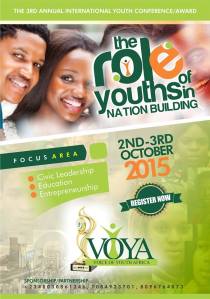In Nigeria, crisis and instability have precluded the government to a large extent from implementing its economic transformation programme. There has been remarkable episodes of insurrection in the country, ranging from the Niger Delta, Jos Plateau, to the Boko Haram (a terrorist group, whose name translates to as “Western education is sinful”) sectarian crisis. There is also a subsisting level of criminality and armed banditry. This has been possible because of the sea-sand of unemployed and socially excluded young men and women roaming the streets, waiting to be recruited for any nefarious purpose. The activities of these groups have variously affected service provision, the state of infrastructure and general economic performance. Howbeit, the persistence and prominence enjoyed by these crisis situations is also as said, a result of the availability of poor and unemployed youths who are at each point willing to be recruited. These who Nigeria claims do not exist are the real bombs the nation must defuse by discovering and remoulding them if the country must live in peace (Olagunju, 2012).
Consequently, providing these youths the opportunity to acquire self-reliance education and employment is key and should be the earnest concern of all governments particularly in Nigeria. Indeed, Anumnu (2001) explicitly maintains that the greatest worry of any growing nation like Nigeria is how to utilize Education fully to develop people’s ability to manage and induce change; or how to improve the standard of living off her citizenry and affect national development.Corruption has severely hampered provision and administration of socio-economic incentives for women and youth development. It is also safe to say that corruption brings about conditions like a bad economy, unemployment, poverty and hunger. Empirical evidence according to Mauro (1997), suggests that corruption lowers investment and retards economic growth to a significant extent. There is also the propensity for corruption to tempt government officials to choose government expenditures less on the basis of public welfare than on the opportunity they provide for extorting bribes. Such situation diminishes the empowerment process and may trigger off a crisis that would retard economic growth and development. The Nigerian government must on this basis, learn to ‘bite the bullet’ in an attempt to fight corruption. This factor cannot be left out when consideration is made as to the causes of the failure of past poverty reduction efforts in Nigeria.
It is necessary to adopt a massive capacity building exercise for empowerment planners who should be the athenaeum of knowledge and strategies for poverty reduction and empowerment. Furthermore, applying a constructionist approach to empowerment administration will suffice as “man has constantly to sum up experience and go on discovering, inventing, creating and advancing …man’s capability to transform his surroundings… (United Nations Environment Programme (UNEP), 1972a), especially when it comes to fighting corruption, negligence and ineptitude.
Government agencies like the legislature may be inclined to fight corruption and official laxity in public institutions, but may not be properly disposed to doing so. This may either be as a result of lack of political will or dearth of the requisite knowledge to do so. In view of this, government should be enlightened to realise that corruption, for example, flourishes where distortions in the policy and regulatory regime provide scope for it and where institutions of restraint are weak. It is the same when an Organization or person has monopoly power over a good or service which generates rent, has the discretion to decide who will receive it, and is not accountable (Bannon, 1999).
The executive and legislative arms who institute, appoint, confirm and allocate budgetary provision for empowerment institutions, must for the above reasons, initiate collective assault on breach of operational guidelines. They should act to strengthen anti-corruption agencies and build capacity of civil society organizations (CSOs) in the country (Daily Independent online, August 29, 2013), through continuous training. In this sense, capacity building both for the regulators and role players is necessary. By the above facts, the purpose of a knowledge-based empowerment programme would be to transform an ignorant situation to a situation built on knowledge rallied from solid investigations. In planning poverty alleviation and empowerment, therefore, concerned institutions must base their actions and decisions on concrete and verifiable facts and data.
Adopted from Afro Asian Journal of Social Sciences Volume 4, No. 4.4 Quarter IV 2013 ISSN: 2229 – 53137
By Emecheta Kingsley Onyemekara.

